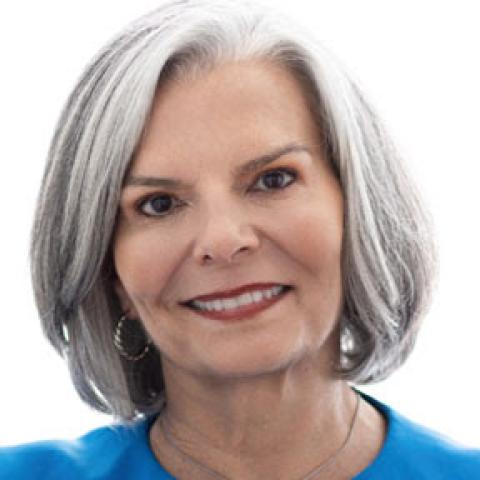Vice Chair Julie Gerberding (WRC '77, MED '81), first woman director of the CDC, to become chair in June 2025
At its most recent meeting, Case Western Reserve University’s Board of Trustees elected a longtime member and history-making leader as its next chair.
Julie Gerberding, MD (WRC ’77, MED ’81)—a renowned infectious diseases specialist who is now chief executive officer of the Foundation for the National Institutes of Health (FNIH)—will become chair of the board in June 2025 for a four-year term.
“In her 13 years on the board so far, Julie has been an invaluable resource for Case Western Reserve,” said Board Chair Fred DiSanto (WRC ’85, MGT ’86), who has led the board since 2020. “She’s been an insightful partner, an impassioned advocate and a transformative leader. I look forward to seeing her expertise in action as I continue on as a trustee.”
A lifetime of leadership
Gerberding’s work in the 1990s at the University of California, San Francisco and San Francisco General Hospital pioneered new methods for preventing infections in healthcare workers and their patients and drew the attention of the U.S. Centers for Disease Control and Prevention (CDC). She joined the agency in 1998 and gained national recognition in 2001 as a prominent CDC representative in front of Congress and the media during the anthrax attacks.
In 2002, Gerberding made history when she became the first woman to direct the CDC, overseeing a $10 billion budget with a workforce of 15,000 people in more than 45 countries, and leading the agency through a strategic restructuring to expand research as well as preparedness and response to bioterrorism, pandemics, and other global health threats.
She then went on to lead the vaccines division at multinational pharmaceutical company Merck before being tapped in spring 2022 as chief executive officer of FNIH, a nonprofit chartered by Congress to support the mission of the National Institutes of Health.
Gerberding has served as a Case Western Reserve trustee since February 2011, gaining insights on committees related to finance, compensation, and research and technology transfer, the latter of which she’s chaired since 2016. She also has been the board’s vice chair since 2019.
“I am honored to be elected chair of my alma mater’s Board of Trustees and help guide this illustrious institution into its next century,” said Gerberding. “Throughout my career—whether in hospitals, government, or industry—the key to my success has been interdisciplinary teamwork, and I’m eager to see how we can work to enhance the exceptional academics and research happening across this campus each day.”
Interdisciplinary action
Gerberding’s focus on interdisciplinarity comes at an opportune time for Case Western Reserve: The university recently began work to construct the Interdisciplinary Science and Engineering Building—a five-story, 189,000-square-foot, $300 million research building aimed at bolstering its research enterprise and fueling team-based discoveries.
“That’s my comfort zone,” Gerberding told CWRU Medicine, “bringing in diverse points of view, disciplines, and interests to create a ‘wise crowd’ that can solve really hard problems.”
Leading the Board of Trustees—a group of more than 40 individuals with expertise ranging from finance to technology—will allow Gerberding to exercise such skills as the trustees work to enhance the long-term well-being of the university.
She’ll also help guide Case Western Reserve into its bicentennial celebration in 2026.
“This is a historic moment for CWRU, marking 200 years of research breakthroughs and academic excellence,” said Joe Mandato (MGT ’04), DBA, chair of the Committee on Trustees and Governance. “As a history maker herself and, more importantly, an exceptional, intelligent leader, Julie is an ideal person to chair the board at this moment.”
Gerberding has earned more than 50 awards and honors throughout her trailblazing career, including the United States Department of Health and Human Services Distinguished Service Award, placement on TIME’s 100 Most Influential People in the World list, and repeated spots on Forbes’ 100 Most Powerful Women in the World list.
In 2021, that list of accolades grew when Case Western Reserve University School of Medicine named its newest academic society—small cohorts to which matriculating students are randomly assigned—in her honor. She is one of six critical figures in the history of the medical school to have a society named after them.
“As a double alumna, Julie is an outstanding representation of the exceptional quality of leaders that Case Western Reserve produces,” said President Eric W. Kaler, PhD. “Julie has a proven track record of making incredible impacts on organizations, and I’m confident she’ll bring that same level of ingenuity to her new role leading our board.”


